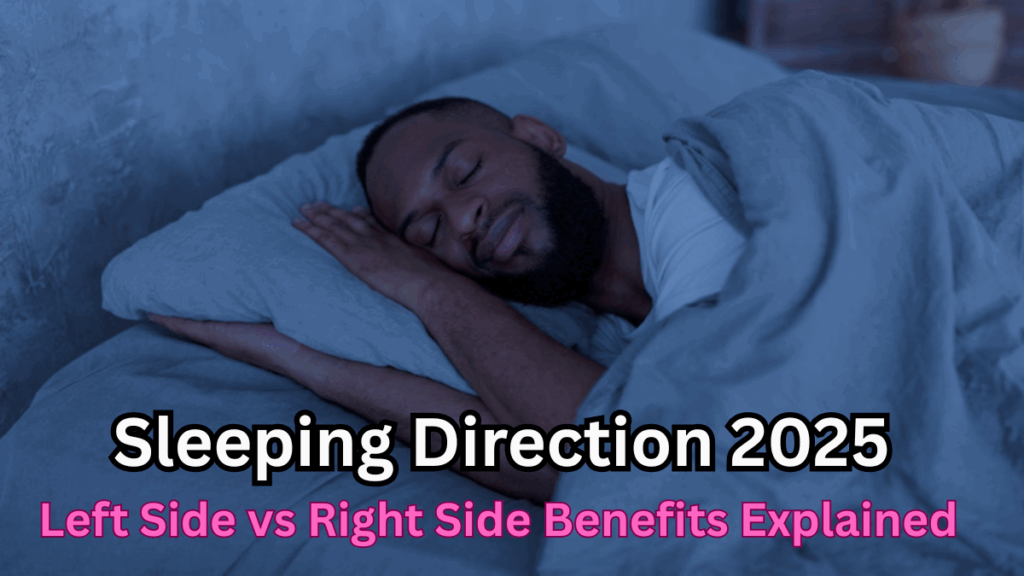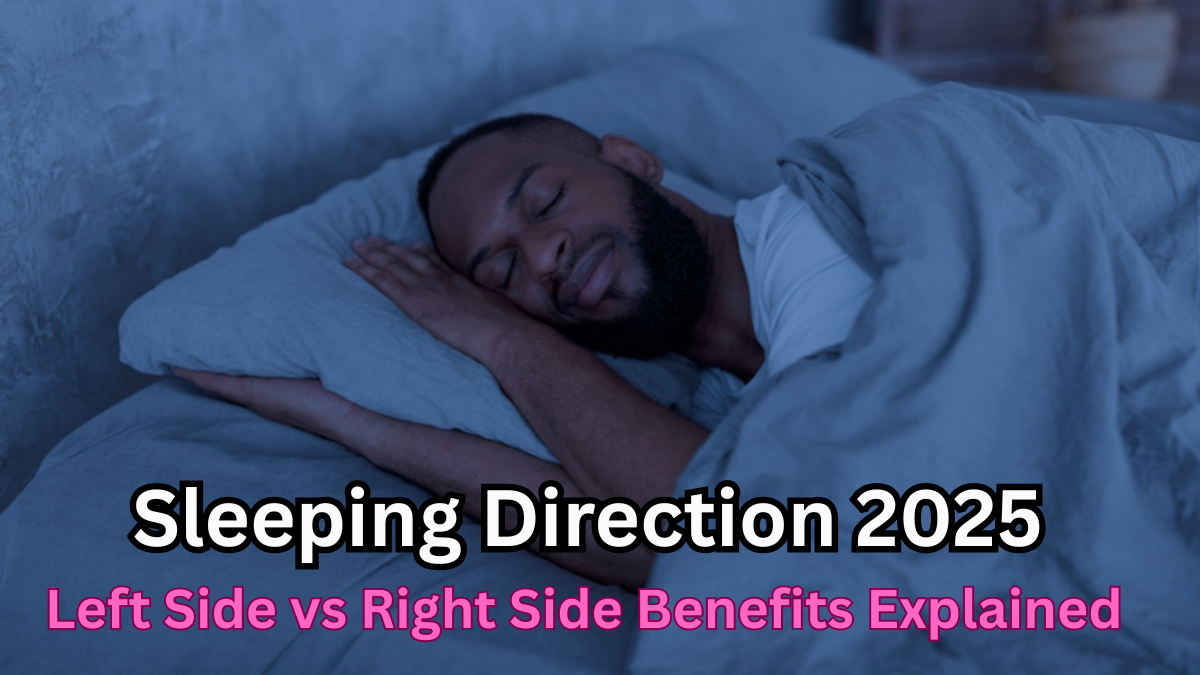A good night’s sleep is more than just the number of hours you rest—it’s also about how and where you sleep. In fact, your sleeping direction can influence your health, mood, and overall lifestyle. With more people focusing on wellness, Sleeping Direction 2025 has become a hot topic, especially when comparing the left side vs right side sleep positions.
Let’s explore the health benefits and lifestyle tips linked to both sleeping directions so you can choose what works best for your body.

Why Sleeping Direction Matters
Your sleep position affects:
-
Blood circulation
-
Digestion
-
Spinal alignment
-
Breathing and lung function
-
Overall energy levels
Choosing the right side can enhance comfort, while the wrong one might worsen health issues like acid reflux, snoring, or back pain.
Left Side Sleeping – Health Benefits
Sleeping on your left side has long been recommended in Ayurveda and modern science for multiple reasons.
Key Benefits:
-
Improves digestion by allowing gravity to aid bowel movement
-
Reduces acid reflux and heartburn
-
Enhances circulation, especially beneficial for pregnant women
-
Promotes better lymphatic drainage and toxin removal
Best For:
-
People with digestive issues
-
Expecting mothers
-
Those with frequent heartburn
Right Side Sleeping – Health Benefits
Though often underrated, right side sleeping also comes with unique advantages.
Key Benefits:
-
Supports heart function by reducing pressure on the organ
-
May improve comfort for people with certain heart conditions
-
Encourages relaxation and deeper sleep in some individuals
-
Can be helpful for those with high blood pressure
Best For:
-
People with cardiovascular concerns
-
Individuals who struggle with stress or anxiety
-
Those who want a more calming rest position
Left Side vs Right Side Sleeping – Quick Comparison
Here’s a simple breakdown to help you decide:
| Aspect | Left Side Sleeping | Right Side Sleeping |
|---|---|---|
| Digestion | Excellent support, prevents acid reflux | Neutral, not as effective |
| Heart Health | Puts slight pressure on the heart | Reduces heart strain |
| Pregnancy | Strongly recommended for circulation | Not ideal |
| Relaxation | Good for digestion but may cause shoulder pain | Promotes calmness, may aid blood pressure |
| Overall Suitability | Great for digestive health and pregnancy | Great for relaxation and heart comfort |
Lifestyle Tips for Better Sleep Positions
To maximize the health benefits of sleep positions, follow these lifestyle tips:
-
Use a firm pillow to keep your head aligned
-
Place a small pillow between your knees if you sleep on your side for better spinal support
-
Avoid sleeping immediately after a heavy meal
-
Switch sides during the night to balance pressure on shoulders and hips
-
Ensure your mattress supports your spine properly
Final Thoughts
When it comes to Sleeping Direction 2025, both left and right side positions offer unique health benefits. If digestion is your main concern, the left side is your best bet. If heart comfort and relaxation matter more, the right side may suit you better.
The key is listening to your body and making small lifestyle changes that enhance your overall sleep quality.
FAQs on Sleeping Direction 2025
Q1. Which is the healthiest sleeping direction in 2025?
The left side is often considered the healthiest due to its benefits for digestion, heartburn relief, and pregnancy support.
Q2. Is sleeping on the right side bad for health?
Not necessarily. Right side sleeping can ease heart pressure and improve relaxation, making it suitable for some individuals.
Q3. Can I switch between left and right side while sleeping?
Yes, alternating between both sides can balance pressure on your body and reduce stiffness.
Q4. What lifestyle tips improve side sleeping comfort?
Using supportive pillows, a good mattress, and avoiding heavy meals before bed can make side sleeping more comfortable and effective.
Click here to learn more
